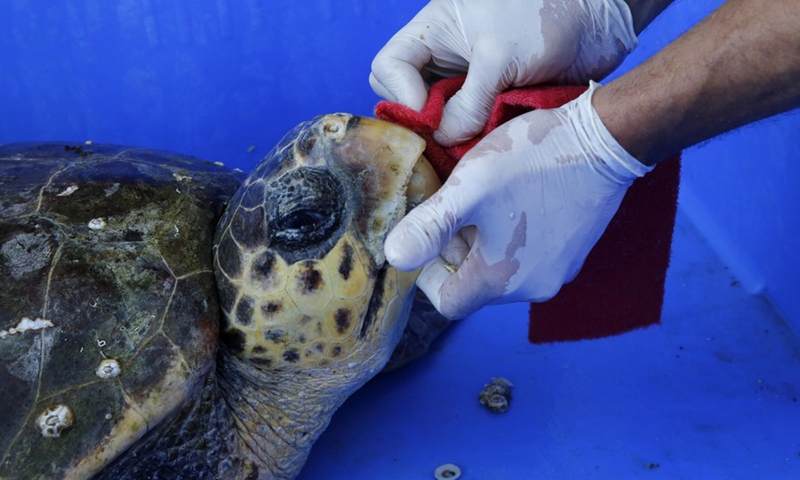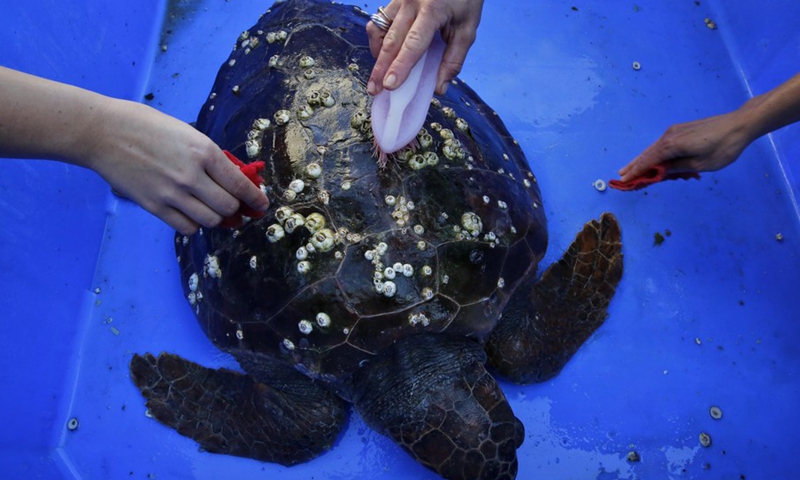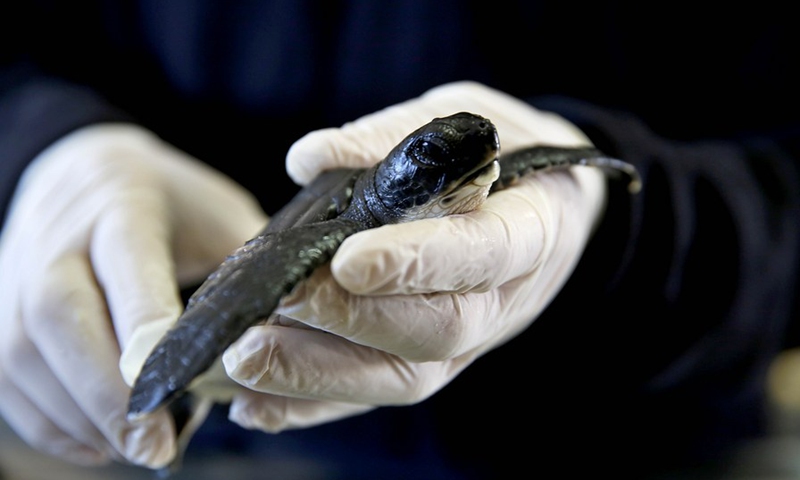
An Israeli worker takes care of an injured loggerhead turtle at the Israeli Sea Turtle Rescue Center near Israeli city of Netanya on Feb. 21, 2021.(Photo: Xinhua)

Israeli workers clean an injured loggerhead turtle at the Israeli Sea Turtle Rescue Center near Israeli city of Netanya on Feb. 21, 2021.(Photo: Xinhua)

An Israeli worker takes care of an injured loggerhead turtle at the Israeli Sea Turtle Rescue Center near Israeli city of Netanya on Feb. 21, 2021.(Photo: Xinhua)
Israel has been striving for about a month to clean up its beaches and save injured turtles, following severe tar pollution in the Mediterranean Sea.
Sunbathing is still not permitted by authorities on all beaches, while the tar cleanup continues after dozens to hundreds of tonnes of tar were washed ashore along about 160 km of Israel's coast.
Yaniv Levy, head of The National Sea Turtle Rescue Center of Israel Nature and Parks Authority, said the center received a lot of injured turtles suffering from the oil spill, stranded on shore after a storm, and they had tar covering all over their bodies.
"Until now, we recorded 21 turtles suffering from tar, six of them alive and 15 dead," Levy said. "We treated them here by getting all the tar out with oil, and we used, strangely enough, mayonnaise, by force-feeding them with it."
Mayonnaise dilutes the tar from the intestines and allows turtles to absorb food. It has proteins, fats that help them get stronger and make their immune system start reacting against the trauma of tar contamination, according to Levy.
Levy and his team washed off the tar from baby turtle bodies by using oil. They will be treated for an additional month or two before being released back to the sea.
It is estimated by Levy that there are hundreds to thousands of turtles harmed by the oil spill, especially young ones that live on the surface of the water, "I work in the rescue center for 22 years, and we never had a situation like that," he said.
The baby turtles were covered with tar begining from their head and down to half or full body outside and inside. It indicates, according to Levy, that turtles thought tar was either food or a floating platform and therefore tried to catch it as they used to do with algae.
Barak Goldstein, a volunteer in The National Sea Turtle Rescue Center, told Xinhua that he, like many others, came to take care of injured turtles, "when you get a call for help like this," you need to leave everything and come fast.
Thousands of volunteers, environmental organizations, local authorities, army personnel, governmental units, politicians, paid workers, startup companies, and more are taking part in cleaning beaches and finding solutions to restore nature.
Israeli Ministry of Health permitted again last Tuesday selling fish from the Mediterranean Sea after forbidding it for two weeks due to health concerns over possible contamination from the oil spill.
Another concern of the authorities is the arrival of additional waves of tar that has sunk at shallow waters and might flow again when sea temperature rises in the coming months in the summer.
The oil spill in the Mediterranean Sea in February was considered to be one of the country's worst environmental disasters.
Israeli authorities have launched investigations to find who is responsible for the ecological damage. However, the source of the oil spill has not been found.
Israel suffered in December 2014 another major oil spill from a pipeline at Evrona Nature Reserve.
